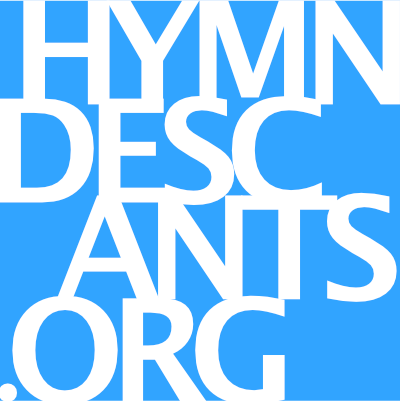Descant to the hymn tune ST BOTOLPH. Audio: hymnal verse - harmonized descant. Free score.
1 hymnal
We walk by faith, and not by sight;
no gracious words we hear from him
who spoke as none e'er spoke;
but we believe him near.
2. descant
that, when our life of faith is done,
in realms of clearer light
we may behold you as you are,
with full and endless sight.
Henry Alford was a cleric and academic - and an omnivorous learner - who held clerical posts in the Church of England, but also ventured into poetry, illustration, and publishing. The best regarded of his works are his translation of Homer, and an eight-volume Greek New Testament with comparative texts. His clerical trajectory began with a small vicarage, traversed a significant rectorship with a large congregation, and reached its apex with his appointment as dean of Canterbury cathedral. The author of We walk by faith, and not by sight was renown as a preacher, and produced many hymns of an evangelical nature, some of them still well known today ( Come, ye thankful people, come is one notable composition).
The hymn tune ST BOTOLPH was written in 1929 by Gordon Slater and published a year later in Songs of Praise for Boys and Girls. The tune is named for the parish which Slater served as organist from 1919 to 1927, before he became organist at Leicester Cathedral. Three years later he became organist and choirmaster of Lincoln Cathedral, a post he held for 36 years. The parish church of St Botolph is in Lincolnshire, in the port town of Boston - the church and town both named for the seventh century missionary and abbot Botwulf, who founded a monastery at Iken, nearby. There is little reliable information about Botwulf save for a brief mention, written a generation after his death, in an anonymous account of the Life of St. Ceolfrith wherein Botwulf was cited as "a man of unparalleled life and learning." Another entry, in the Anglo-Saxon Chronicle, would have been written more than 200 years afterward. (The place name 'Boston' is derived from Botwulf's Town.)
Includes alternate version in C (lowers high A to G)
Music copyright © Oxford University Press; Descant and harmonization arr. David Maurand
Descant text:
That when our life of faith is done,
In realms of clearer light
We may behold Thee as Thou art,
With full and endless sight.
-Henry Alford (1810-1871)

